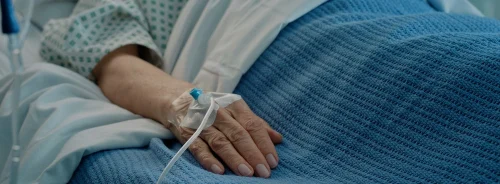ICU Management & Practice, ICU Volume 15 - Issue 1 - 2015
ICU Management interviewed Gabriel Heras La Calle MD (Intensive Care Physician, blogger of TheIC-HU Project: Humanizing Intensive Care) about the blog. In just 8 months of existence, the IC-HU Project has been awarded the Best Health Ideas 2014 Award by Diario Médico in the legal, ethical and deontological section.
When and why did you start your blog?
I started the blog in February 2014, because I realised we could improve intensive care units (ICUs) in several respects that we do not usually focus on. I invite everybody to stop, to listen and to act for medicine and nursing focused on people, their families, and health professionals.
We started The IC-HU Project in the Intensive Care Unit of the Hospital Universitario de Torrejón, analysing patient and family satisfaction in a prospective study. I think we should pay attention as well to healthcare providers. We have detected nine areas to improve that include:
1. Communication: getting information to patients / families and among professionals.
2. Burn-out in professionals.
3. Opening hours: when the doors of the ICU are open, flexible schedules, presence, and family satisfaction and involvement in care.
4. Listen to the views of patients and family in the ICU: retrieve the clinical history.
5. Integrative medicine: including for example music therapy, activities, physiotherapy.
6. Architectural improvements to the ICU.
7. Management of post-ICU syndrome: psychological aspects, depression, pain management.
8. Skills training for healthcare providers: Resilience, teamwork, counselling, empathy,listening.
9. Management of end-of-life situations: “Death Code”, limiting life support, palliative care.
Why is it called “Humanizing intensive care?”
During the last 20 years, the development of intensive care medicine in Spain has been huge, and we have reduced mortality to really impressive figures. But maybe we have displaced people out of the system’s centre, and we want to regain this status for the patient.
When I say “humanizing intensive care”, does this mean current care is inhuman? By no means. Survival rates in intensive care units are 85% in Spain and this figure might increase. In fact, we earned some criticism for employing the term “humanization”, probably because many times it is not very clear what we mean by it. Humanizing means to us to become aware of oneself in a complex and multidimensional process that goes from politics and policies to culture, the healthcare organisation, the training of healthcare professionals, the development of care plans and so on. In the healthcare world, humanizing means to put the human being in the centre of every effort done to promote and protect health, cure diseases and provide an environment that ensures a healthy and harmonic life on all levels: physical, mental and spiritual. Also in the process of death, as a part of life. Using the word “humanization”, we take ill people out of their passive status, and encourage healthcare professionals to do an excellent job for their patients.
In Spain one of the best examples is the Humanization Commission of the San Juan Hospital in Alicante. They have been working in the field for over 20 years.
How much time do you spend on your blog?
I usually write a daily post from Tuesday to Saturday from 6.30 to 7 AM. Then I share the post in the networks, and usually about 12 PM I translate it into English to give more diffusion. On Mondays I usually share “The phrase of the week”, to re-encourage healthcare providers to recover their vocation.
Why did you choose blogging instead of traditional communication such as conference presentations and academic papers?
I did not choose. In fact, we have been invited to several Workshops and Conferences in Spain and probably in the next Congress in Latin America. The Research IC-HU Project applied for the last Research Awards of European Society of Intensive Care, and we have published three articles indexed in PubMed during 2014-15. (Escudero et al. 2014; Holanda Peña et al. 2015; La Calle and Lallemand 2014).
My blog is a loudspeaker, which helps us to disseminate our message. This way of communication helps us to talk with ICU patients and families and hear their opinions. More than 95% people search about their illness in Google, and I think physicians should help them and have a more open-minded approach. The blog is a meeting point for everyone, and helps us in our researches to get in touch with people from different parts of the world. There are many healthcare workers around the planet with the same feeling, and I want to join everyone in a single project, to be more powerful.
What has been the response to your blog from other intensivists and from patients?
In the first year, the blog had more than 130,000 page views in Spanish and over 53,000 in English. We have visitors from every country of the world! Three editors are ICU patients, and it´s very interesting to put in value their opinions. Something is changing in Intensive Care Units.
And now you have your first video “Human Tools”. What is the idea behind the video?
We needed to communicate with a sense of humour that probably we should change our attitude. We are used to admiration when someone researches about sepsis, acute respiratory distress syndrome or other pathologies. But I think researching in humanizing is an awesome field, and we should get in touch with the human being again, improving in empathy, team work, communication skills…As we say in ‘Human Tools’: Just BE SWEET, BE HUMAN.
What’s next?
I am organising the National Conference on Humanization, centered in the Intensive Care Unit. It will be held in Madrid on 27-28 May. I am thinking with other intensive care professionals from different parts of the world, to organise an International Conference on Humanization in 2016. I have connected with people from everywhere: Australia, US, New Zealand, The Netherlands, other European Countries, Latin America... Let´s change the paradigm!
References:
Escudero D, Viña L, Calleja C (2014) Por una UCI de puertas abiertas, más confortable y humana. Es tiempo de cambio; For an open-door, more comfortable and humane intensive care unit. It is time for change. Med Intensiva, 38(6): 371-5. [Article in Spanish & English]
Holanda Peña MS, Ots Ruiz E, Domínguez Artiga MJ et al. (2015) Medición de la satisfacción de los pacientes ingresados en unidad de cuidados intensivos y sus familiares; Measuring the satisfaction of patients admitted to the intensive care unit and of their families. Med Intensiva, 39(1): 4-12. [Article in Spanish & English]
La Calle GH, Lallemand CZ (2014) HUCI se escribe con H de HUMANO, Enferm Intensiva, 25(4): 123-4.
Proyecto Humanizando Los Cuidados Intensivos (2015) Human tools [video]. [Accessed: 24 February 2015] Available from: https://www.youtube.com/watch?v=Hx1VdmzKLvo






